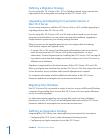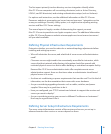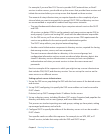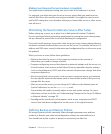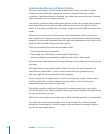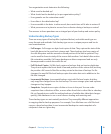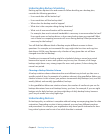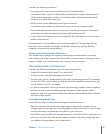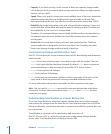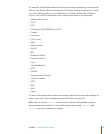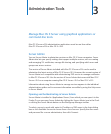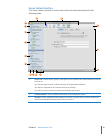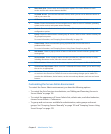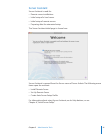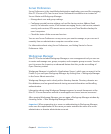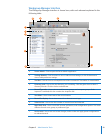
 Capacity. If you back up only a small amount of data, low-capacity storage media
can do the job. But if you need to back up large amounts of data, use high-capacity
devices, such as a RAID.
 Speed. When your goal is to keep your server available most of the time, restoration
speed becomes a big factor in deciding which type of media to choose. Tape
backup systems can be very cost eective, but they are much slower than a RAID.
 Reliability. Successful restoration is the goal of a good backup strategy. If you can’t
restore lost data, all the eort and cost you spent in backing up data is wasted and
the availability of your services is compromised.
Therefore, it’s important that you choose highly reliable media to prevent data loss.
For example, tapes are more reliable than hard disks because they don’t contain
moving parts.
 Archive life. You never know when you’ll need your backed up data. Therefore,
choose media that is designed to last for a long time. Dust, humidity, and other
factors can damage storage media and result in data loss.
Command-Line Backup and Restoration Tools
Mac OS X Server provides several command-line tools for data backup and restoration,
which include:
 rsync. Use to keep a backup copy of your data in sync with the original. The tool
rsync only copies the les that have changed. By default rsync does not preserve
extended attributes in les necessary for many Mac OS X Server services.
 ditto. Use to perform full backups.
 tar. Use to perform full backups.
 asr. Use to back up and restore a volume in block copy mode. If the tool is in le
copy mode, it does not preserve all necessary extended attributes in les.
For more information about these commands, see their respective man pages.
Note: You can use the launchctl command to automate data backup using these
commands. For more information about using launchctl and launchd, see their
respective man pages.
Understanding Time Machine as a Server Backup Tool
At its core, Time Machine is a le-level backup solution that runs at regular intervals
and archives le changes from the initial le set. Time Machine makes use of UNIX le
linking to eciently store backup intervals as separate browsable le systems, but uses
no compression.
Time Machine is a limited tool for data backup and restoration of
Mac OS X Server v10.6. It can back up some server conguration settings and the
service state. Time Machine does not back up service data.
36 Chapter 2 Planning Server Usage



